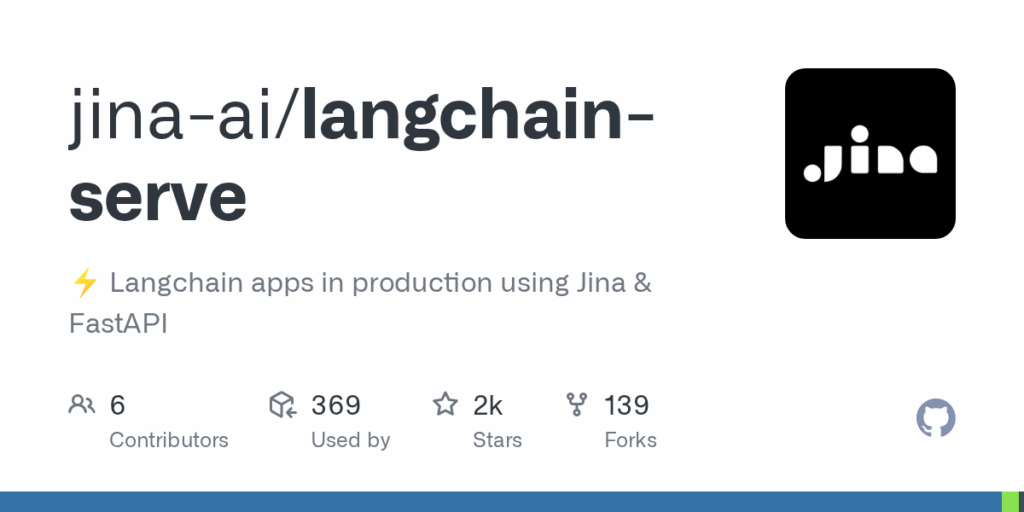langchain serve
Basic Information
langchain-serve is a toolkit to package, deploy and operate LangChain applications on Jina AI Cloud or on-premises infrastructure. It provides a developer-oriented workflow and a CLI to turn LangChain code and FastAPI apps into secure, autoscaling REST and WebSocket services with minimal configuration. The project includes ready-to-deploy app templates such as AutoGPT, BabyAGI, pandas-ai and a PDF question answering bot to demonstrate production usage patterns. It supports streaming LLM interactions, human-in-the-loop workflows, persistent storage mounts, secrets management and OpenAPI/Swagger endpoints for each deployed app. The README notes the repository is archived and read-only, and it documents installation and commands for local, cloud and exportable Kubernetes or Docker Compose deployments.








